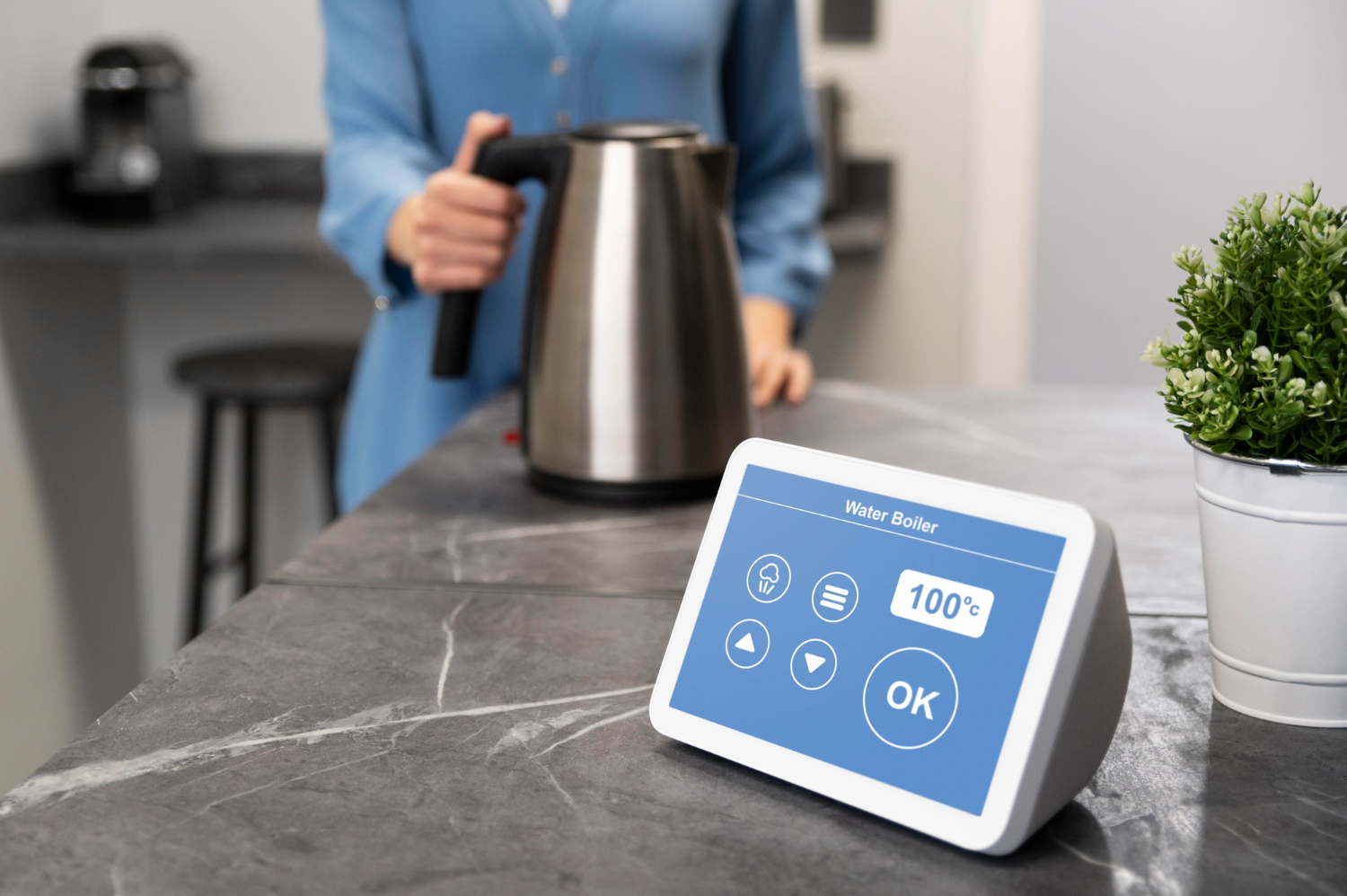Introduction to Smart Home Technologies for Sustainability
Defining Smart Home Technologies
Smart home technologies refer to systems and devices that automate and control various home functions. These technologies include smart thermostats, lighting, security systems, and appliances. By leveraging the Internet of Things (IoT), these devices communicate with each other, optimizing home operations.
The Importance of Sustainability in Buildings
Sustainability in buildings involves using resources efficiently to reduce environmental impact. It focuses on minimizing energy consumption, waste, and carbon footprint while maximizing occupant comfort and health. Integrating smart home technologies can significantly enhance a building’s sustainability.
Energy Efficiency through Smart Home Technologies
Smart Thermostats
Smart thermostats, like the Nest Learning Thermostat, learn your schedule and adjust the temperature accordingly. They optimize heating and cooling, reducing energy waste. Users can control these thermostats remotely via smartphone apps, ensuring energy efficiency even when away from home.
Energy Monitoring Systems
Energy monitoring systems track a building’s energy consumption in real time. These systems provide detailed reports, helping homeowners identify energy-hogging devices and make informed decisions about energy use. By optimizing energy consumption, these systems contribute to overall sustainability.
Water Conservation with Smart Technologies
Smart Irrigation Systems
Smart irrigation systems, such as Rachio, use weather data and soil moisture levels to optimize watering schedules. These systems ensure that plants receive the right amount of water, reducing waste and promoting water conservation.
Water Leak Detectors
Water leak detectors can prevent significant water waste and damage by detecting leaks early. Devices like the Flo by Moen monitor water flow and pressure, alerting homeowners to potential leaks and allowing for quick intervention.
Enhancing Indoor Air Quality
Smart Air Purifiers
Smart air purifiers, like those from Dyson, monitor air quality and adjust their operation to maintain a clean and healthy indoor environment. These devices can remove allergens, pollutants, and toxins, improving indoor air quality and occupant health.
Ventilation Systems
Smart ventilation systems ensure that indoor air remains fresh and free from contaminants. Systems like the Panasonic WhisperGreen optimize airflow based on indoor air quality readings, enhancing both comfort and health.
Sustainable Lighting Solutions
LED Lighting
LED lights are more energy-efficient and longer-lasting than traditional incandescent bulbs. Smart LED lighting systems, like Philips Hue, allow users to control lighting remotely, set schedules, and adjust brightness and color to suit their needs.
Motion Sensor Lights
Motion sensor lights automatically turn on and off based on movement, reducing energy waste. These lights are ideal for areas like hallways and bathrooms, where lights are often left on unintentionally.
Smart Home Technologies for Waste Management
Smart Trash Bins
Smart trash bins, such as the Bruno Smartcan, feature sensors that detect when the bin is full and automatically order replacement bags. These bins can also sort recyclables from regular trash, promoting efficient waste management.
Composting Systems
Smart composting systems, like the Food Cycler, break down organic waste quickly and efficiently. These systems reduce the amount of waste sent to landfills and produce nutrient-rich compost for gardening.
Renewable Energy Integration
Solar Panels
Solar panels harness renewable energy from the sun, reducing reliance on fossil fuels. Smart solar systems, like those from Tesla, include battery storage and energy management features, maximizing energy efficiency and sustainability.
Wind Turbines
Small-scale wind turbines can supplement a building’s energy needs. These systems generate electricity from wind, providing a renewable energy source that reduces carbon footprint.
Smart Home Technologies and Building Automation
Building Management Systems (BMS)
Building Management Systems (BMS) integrate various building functions, such as HVAC, lighting, and security, into a single platform. These systems optimize building performance, reduce energy consumption, and enhance occupant comfort.
Automated Window Shades
Automated window shades, like those from Lutron, adjust based on sunlight and room occupancy. These shades reduce the need for artificial lighting and heating, contributing to overall energy efficiency.
Enhancing Security with Smart Technologies
Smart Security Systems
Smart security systems, such as Ring and Nest Secure, offer real-time monitoring and alerts. These systems enhance building security while providing remote access and control, ensuring peace of mind for homeowners.
Smart Locks
Smart locks, like those from August, allow keyless entry and remote access. These locks can be integrated with other smart home systems, enhancing security and convenience.
Sustainable Building Materials
Recycled Materials
Using recycled materials in construction reduces waste and conserves resources. Materials like reclaimed wood, recycled steel, and recycled glass offer sustainable alternatives for building projects.
Sustainable Insulation
Sustainable insulation materials, such as cellulose and wool, provide effective thermal performance while being environmentally friendly. These materials reduce energy consumption and enhance building sustainability.
Smart Home Technologies for Heating and Cooling
Geothermal Heating and Cooling
Geothermal systems use the stable temperature of the earth to heat and cool buildings. These systems are highly efficient and sustainable, reducing reliance on fossil fuels.
Smart HVAC Systems
Smart HVAC systems, like those from Ecobee, optimize heating and cooling based on occupancy and weather conditions. These systems reduce energy consumption and enhance indoor comfort.
Sustainable Landscaping with Smart Technologies
Smart Lawn Mowers
Smart lawn mowers, such as the Husqvarna Automower, maintain lawns efficiently and sustainably. These mowers operate quietly and autonomously, reducing emissions and promoting a healthy lawn.
Rainwater Harvesting Systems
Rainwater harvesting systems collect and store rainwater for irrigation and other uses. These systems reduce reliance on municipal water supplies and promote sustainable water management.
Reducing Carbon Footprint
Carbon Footprint Calculators
Carbon footprint calculators help homeowners assess their environmental impact. These tools provide insights into energy consumption, waste generation, and transportation, encouraging sustainable practices.
Offset Programs
Carbon offset programs allow homeowners to offset their carbon footprint by investing in renewable energy projects and reforestation efforts. These programs promote global sustainability and environmental stewardship.
Smart Home Technologies for Appliance Efficiency
Energy-Efficient Appliances
Energy-efficient appliances, such as those with the Energy Star label, consume less energy and water. Smart appliances, like smart refrigerators and washing machines, offer additional features for energy management and sustainability.
Appliance Monitoring Systems
Appliance monitoring systems track the energy usage of individual appliances. These systems provide insights into energy consumption patterns, helping homeowners identify inefficient appliances and optimize usage.
Enhancing Comfort with Smart Technologies
Smart Beds
Smart beds, like those from Sleep Number, adjust firmness and support based on user preferences. These beds monitor sleep patterns and provide data to improve sleep quality and overall health.
Smart Showers
Smart showers, such as those from Moen, offer precise temperature control and water conservation features. These showers enhance comfort while reducing water waste.
Smart Home Technologies for Disaster Preparedness
Smart Smoke and CO Detectors
Smart smoke and carbon monoxide (CO) detectors, like Nest Protect, offer real-time alerts and remote monitoring. These detectors enhance safety by detecting smoke and CO early and notifying homeowners immediately.
Emergency Power Solutions
Smart home technologies include emergency power solutions, such as backup generators and battery storage systems. These solutions ensure a continuous power supply during outages, enhancing safety and comfort.
Enhancing Accessibility with Smart Technologies
Voice-Activated Assistants
Voice-activated assistants, like Amazon Alexa and Google Assistant, enhance accessibility for individuals with disabilities. These assistants control various smart home devices, making daily tasks easier and more convenient.
Smart Doorbells
Smart doorbells, such as Ring, offer video and audio communication with visitors. These doorbells enhance security and accessibility, allowing homeowners to interact with visitors remotely.
The Future of Smart Home Technologies
Advancements in AI and Machine Learning
Advancements in artificial intelligence (AI) and machine learning are driving the evolution of smart home technologies. These technologies will continue to enhance sustainability by optimizing home operations and reducing energy consumption.
Integration with Smart Grids
Integration with smart grids will enable better energy management and distribution. Smart homes can interact with the grid to optimize energy use, reduce costs, and enhance sustainability.
Financial Benefits of Smart Home Technologies
Energy Savings
Smart home technologies can significantly reduce energy bills by optimizing energy consumption. Smart thermostats, lighting, and appliances contribute to lower utility costs, providing financial benefits for homeowners.
Increased Property Value
Homes equipped with smart technologies often have higher property values. These technologies enhance comfort, convenience, and sustainability, making them attractive to potential buyers.
Conclusion: Embracing Smart Home Technologies for Sustainability
Long-Term Benefits
Embracing smart home technologies offers long-term benefits for both homeowners and the environment. These technologies enhance sustainability, reduce energy consumption, and improve quality of life.
Taking the First Step
The first step towards a sustainable home is adopting smart home technologies. Start with small changes, like installing a smart thermostat or LED lighting, and gradually integrate more technologies to enhance sustainability.
FAQs:
- What are smart home technologies?
- Smart home technologies include systems and devices that automate and control home functions, optimizing energy use and enhancing sustainability.
- How do smart thermostats contribute to energy efficiency?
- Smart thermostats learn your schedule and adjust temperatures accordingly, reducing energy waste and optimizing heating and cooling.
- Can smart home technologies improve indoor air quality?
- Yes, smart air purifiers and ventilation systems monitor and improve indoor air quality, enhancing occupant health.
- What are the financial benefits of smart home technologies?
- Smart home technologies reduce energy bills and increase property value, providing financial benefits for homeowners.
- How do smart irrigation systems promote water conservation?
- Smart irrigation systems use weather data and soil moisture levels to optimize watering schedules, reducing water waste.
- Are smart home technologies environmentally friendly?
- Yes, smart home technologies enhance sustainability by reducing energy consumption, waste, and carbon footprint.
- Can smart home technologies be integrated into existing homes?
- Yes, many smart home technologies can be retrofitted into existing homes, enhancing sustainability and convenience.
- What is a Building Management System (BMS)?
- A BMS integrates various building functions, such as HVAC and lighting, into a single platform, optimizing performance and energy use.
- How do smart security systems enhance home safety?
- Smart security systems offer real-time monitoring and alerts, enhancing home security and providing remote access and control.
- What are the benefits of using renewable energy systems like solar panels?
- Renewable energy systems reduce reliance on fossil fuels, lower energy bills, and contribute to environmental sustainability.


